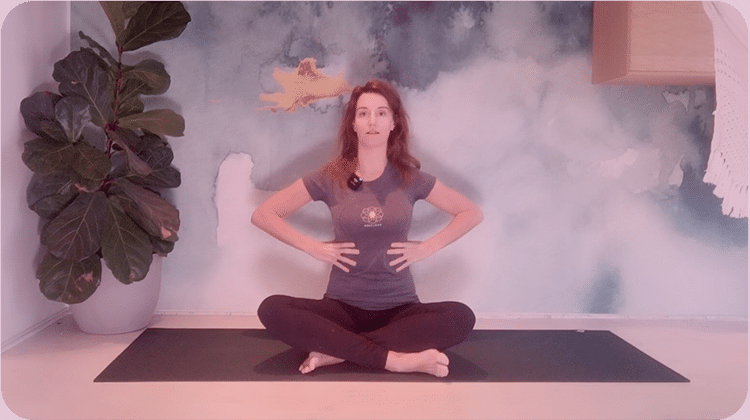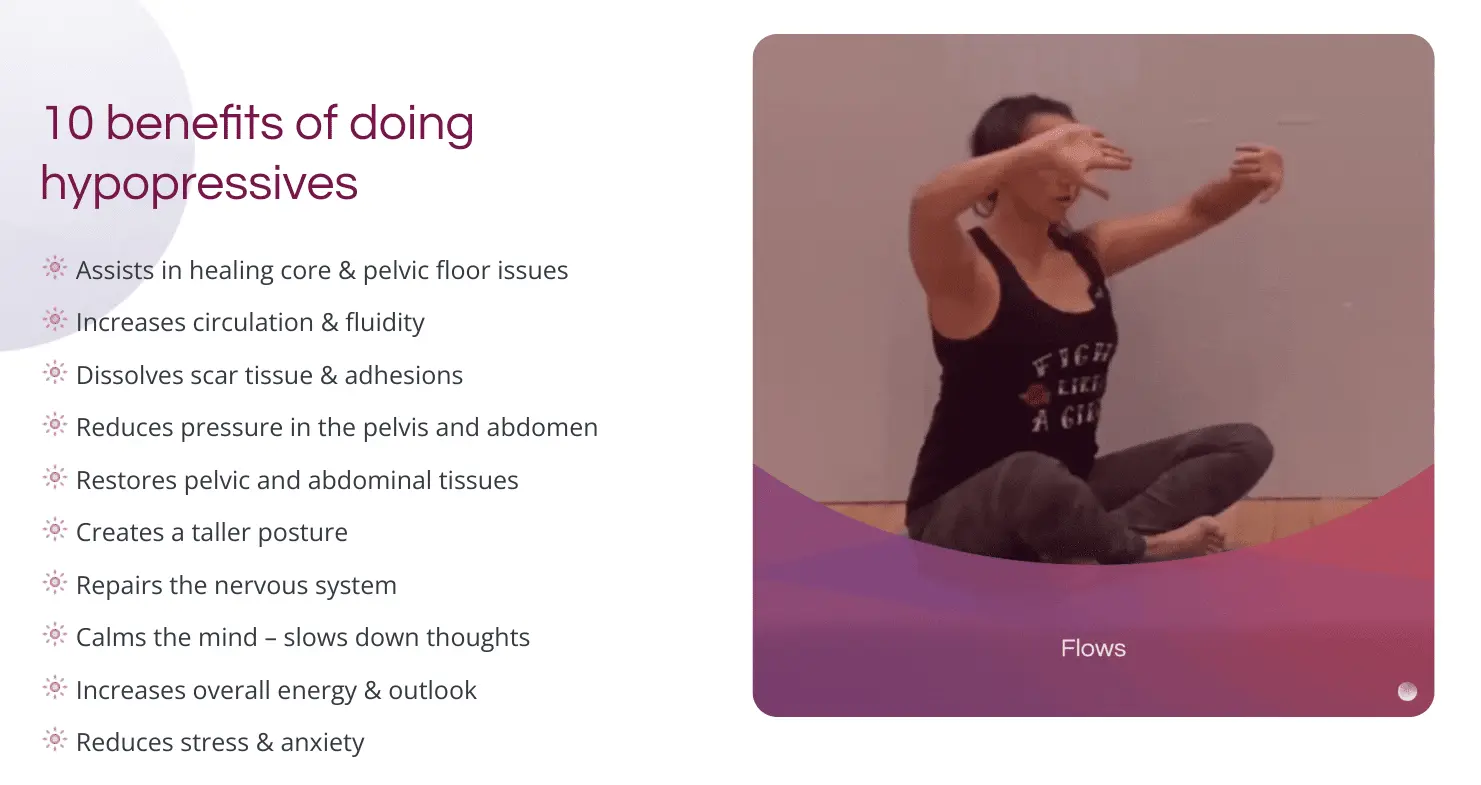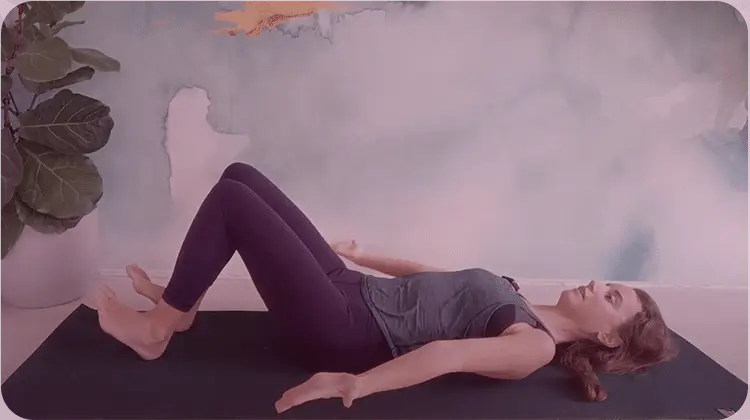Why do I get night sweats during my period?
- June 9, 2022
- Hormonal Health

Sweating profusely because of a nightmare is understandable — but if you wake up drenched from a deep slumber, your period could be the culprit.
But why? Are night sweats normal during period?
Well, for some, night sweats can occur at some point during the menstrual cycle and more so as women approach perimenopause in their mid 30s or 40s.
But whether you experience night sweats before period or night sweats during period, in this blog, we will talk about its relationship to your menstrual cycle, why it happens, what are the possible ways to manage them, and when to see a doctor.
In other words, we’ll help you figure out if your night sweats are something to sweat about!
Why do they happen?
During your period, night sweats (also called sleep or nocturnal hyperhidrosis) mainly happen due to hormonal fluctuations.
The sudden rise of progesterone and drop of estrogen may affect your hypothalamus—the part of your brain that regulates body temperature. Specifically, low estrogen levels trigger the release of norepinephrine, making your hypothalamus sensitive to temperature changes. In this case, it sends a signal to your body to cool off by sweating excessively even when it’s not needed.
Night sweats belong in the category of Premenstrual Syndrome (PMS), which can start between days 10–14 of your menstrual cycle, and about a week before your actual period (right after ovulation).
Hormonal shifts are normal during your reproductive years. However, if you have been diagnosed with a hormonal imbalance, you may face more challenges during your menstrual cycle.
Are cold sweats the same as night sweats?
Cold and night sweats are not the same aside from, well, sweat.
Unlike night sweats that only occur when you’re asleep, cold sweats can take place at any time of the day. You’ll feel chills running down your spine while sweating on certain parts of your body. Cold sweats have nothing to do with either the room temperature nor the intensity of the activity you’re doing.
Cold sweats are commonly felt in your:
• Armpits
• Palms or hands
• Soles of your feet
What else can cause night sweats?
If your night sweats persist despite doing everything you can to prevent them, such as avoiding thick clothing or bedding and sleeping in a well-ventilated room, then your night sweats may be caused by:
An underlying health issue
• Neurologic conditions such as autonomic dysreflexia and stroke
• Infections like tuberculosis and abscesses
• Very low blood sugar (also called hypoglycemia)
• Sleep apnea
• Anxiety or Stress
• Cancer
A hormone-related condition
• Perimenopause
• Menopause
• Hormone disorders like carcinoid syndrome and hyperthyroidism
A side effect from medications such as
• Antidepressants
• Aspirin and acetaminophen (taken to ease fever)
• Steroids and painkillers
• Phenothiazine antipsychotics
• Diabetes medications
• Hormone therapy medications
An unknown reason (idiopathic hyperhidrosis)
Hyperhidrosis has no definite cause and is thought to be the result of a problem with the part of the nervous system that controls sweating.
Could it be early menopause?
Having night sweats is a common sign of menopause, regardless if it happens around your 50s, early on (before age 45), or prematurely (before age 40). Along with other symptoms, they can manifest during perimenopause—months or years before your menstruation completely stops.
And even though it could be menopause, consider getting yourself checked first to rule out serious health problems. Early menopause only happens in about 1 in 100 women and may come with other various health consequences.
Can night sweats be prevented?
Preventing night sweats can be tricky.
However, you can definitely manage some of the triggers by:
• Considering a cooler mattress
• Maintaining a healthy weight
• Avoiding heavy workouts before sleep
• Wearing breathable night clothes
• Placing a fan close to your bed
• Taking a cool shower before sleeping
• Relieving anxiety and stress through relaxation or breathing techniques
• Keeping your environment cool or at least well-ventilated before drowsing off
• Limiting alcohol, caffeine, and spicy food consumption, especially before bedtime
Should I see a doctor?
You should seek prompt medical assistance if you have debilitating night sweats that may or may not be accompanied by other symptoms such as:
• unintentional weight loss
• pain on certain parts of your body
• chills and fever
• chronic cough with blood
• stomachache and diarrhea
In some cases, night sweats are an indication (or a sign of progression) of an underlying health issue.
You could also help your doctor figure out the root cause of your condition by keeping a record or diary of how often your night sweats and other symptoms occur. If it really is a sign of a serious condition, you might be referred to a specialist like an endocrinologist, neurologist, or oncologist for further examination.
But just a reminder:
Some doctors are not inclined to sympathize with their patients, especially if the condition doesn’t seem fatal. But whether your night sweats are one of your PMS symptoms or something else, please leave if you feel disrespected or undervalued.
Your feelings are always valid.
Filippa had the same experience—let down and sent home by the healthcare system when she needed it most. Since then, she dedicated her life to making women feel understood and offering natural healing options that are otherwise ignored by traditional medicine. Through that awakening, our Pelvic Floor Dysfunction Program was born!
If you are experiencing other PMS symptoms along with night sweats, here’s what you can do

Begin a holistic approach to alleviate PMS. Aside from cramps, bloating and cravings, you may have emotional symptoms as well, such as mood swings, anxiety, and irritability.
So, here are ways you can manage PMS using science-based, natural healing methods:
1. Meditation
Alleviates PMS symptoms in a natural way through activating the Parasympathetic Nervous System (PNS), referred to as “rest and digest”.
2. Slow, Deep Breathing
An easy way to help relax your muscles, lower your blood pressure, decrease your body’s response to stress, decrease headaches, and can even reduce symptoms of depression.
3. Visualization
Has deep relaxing effects, while giving you the power to envision the way you want to feel.
4. Yoga & Tai-Chi
These are ways to make your body and mind function in unison. They nurture your physical, mental, and emotional strength while balancing your endocrine system, where your menstruation hormones originate.
5. Healthy Diet
Eating whole-foods rich in fiber, including organic or locally grown fruits, vegetables, non-GMO grains, nuts, fish, and lean meats are beneficial to lessen your risk of developing or worsening PMS symptoms.
6. Supplements
Vitamin B6, B12, C, and E, along with the mineral magnesium, help the liver metabolize and break down estrogen, serving as natural PMS remedies.
7. PMS Tea & Herbs
Raspberry leaf tea, Lavender tea, and other herbs for premenstrual syndrome (like lemon balm and dandelion root) may help with PMS cramping, nausea, and other discomforts.
8. Essential Oils
Clary sage and Marjoram lavender all possess qualities that aid in premenstrual syndrome relief. They have the ability to relieve pain, reduce cramping, lower stress, curb depression symptoms, ease headaches, and improve hormone balance. Just use these oils in a diffuser, add a few drops to a carrier oil, then apply to your skin, or add them to your bath.
Looking for something else?
Check out other articles we made to help you manage PMS:
The Definitive Guide to PMS & 8 Natural PMS Remedies
Birth Control & PMS: A Closer Look
Don’t let PMS cost you (literal) blood, sweat, and tears
Day or night, your period and its symptoms shouldn’t stop you from living your life to the fullest. Here at MoonRise, we teach women from all walks of life how to connect with their bodies and heal from within.
We have practitioners who specialize in PMS-related areas such as:
• PMS & Sexual Trauma
• Pre & Peri-Menstrual Phases
• Hormones and Health Conditions
• Holistic Reproductive Health
• Holistic Nursing
We know that you need someone who understands your condition as much as you need proper treatment.
Gone are the days when women are brushed off and left to suffer in silence!
At MoonRise, you won’t just get a health guide, but also a community that can relate and empathize with you!
Blog posts you might like:






